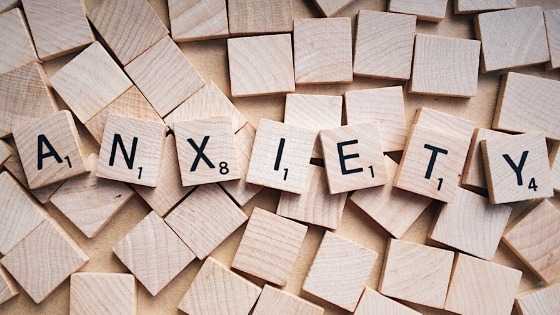Have you ever attended an interview or written an examination ? What you felt days, hours, minutes and seconds before the actual exercise is called anxiety. The stomach cramps, pounding heart, the sweating and chest pains are all signs of anxiety.It is a body’s natural reaction to stress or in anticipation of a future concern. It’s aim is to promote action to solve or avoid the problem.
Anxiety is actually helpful in many cases because one is motivated to prepare and focus attention on the problem. Anxiety becomes problematic when it does not trigger efforts to solve the problem and one is fixated on the problem. Excessive or Prolonged anxiety interferes with ability to function normally which can lead to symptoms that resemble depression. It is therefore common to find people who have anxiety to also feel depressed.
Anxiety and Depression
Inability to deal with stress may result in despair and lead to chronic anxiety.
Chronic anxiety that interferes with daily functioning may usher in persistent
sadness, feelings of hopelessness, anger, irritability and or thoughts of suicide
and death.
When anxiety is a result of a medical condition such as inability to conceive due to an existing medical condition, unless the mental and emotional aspects of the problem are addressed, even the physiological recovery is frustrated. Stress and anxiety interfere with a person’s immunity. And thus there is need to take a unified approach.
Treatment of Anxiety due to a medical condition:
1. Medical Intervention:
Treatment of the medical condition that prevents conception
is a priority since it solves the core issue. This includes empowering the patient with self-care
knowledge. Honesty is key to ensure that the patient gets accurate feedback on their prognosis.
2. Psychotherapy:
This involves dealing with the mental, emotional and social implications
of the core condition. This involves accepting the diagnosis, cooperating with treatment plan and
accepting the possible outcome. This calls for readiness to accept the worst case scenario while
working hard to achieve the best case scenario. This is also where one explores the social and
cultural implications of inability or delayed conception and how to deal with it. New skills can
be acquired which include breathing exercises when anxiety levels are high, assertiveness in order
to communicate firmly to those who may challenge you.
3.Spiritual Approach:
This involves getting the meaning of your current condition from your
beliefs and using your spiritual tools to cultivate calmness and find peace one day at a time. This
may include establishing a routine that seeks to build inner peace and heal any spiritual or emotional
injuries.
We hope this helps you as you walk through this period.
We are grateful to Dr. Margaret Kagwe for her contribution
to this article.
Editor- Editah Hadassa.

